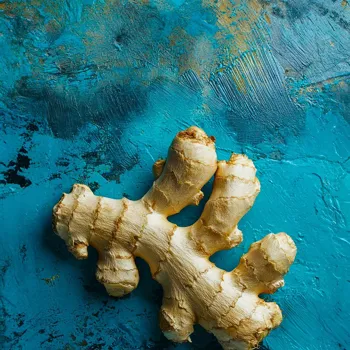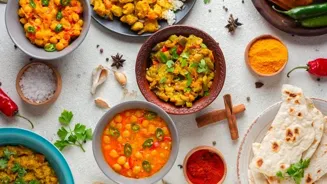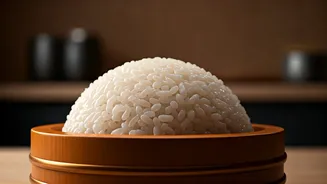Unravel the Mysteries of Indian Spices: Flavor, Health, and History in Every Bite. Dive in for an aromatic adventure!
India, the land of vibrant colours and diverse cultures, is also globally renowned as
the 'Spice Bowl of the World'. For centuries, Indian spices have not only tantalized taste buds but also played a crucial role in traditional medicine.
Beyond adding flavour to our everyday meals, these aromatic wonders possess a treasure trove of health benefits, waiting to be unlocked and understood by modern science and everyday folks alike.
Join us on a fascinating journey as we delve into the secrets of these extraordinary spices, exploring their rich history, culinary uses, and potential for promoting overall well-being.
We will explore spices from across the country, from the cardamom hills of Kerala to the turmeric fields of Andhra Pradesh, uncovering the stories behind these age-old ingredients. Prepare to be amazed by the power held within these tiny, yet mighty, components of Indian cuisine.
The journey is an aromatic adventure, from the familiar warmth of ginger to the tangy brightness of amchur.
Spices in India: ancient roots, Ayurveda influence, global trade impact, modern validation
The use of spices in India goes back thousands of years, with evidence suggesting their presence in the Indus Valley Civilization. Ancient texts, such as the Vedas, mention the medicinal properties of various spices like turmeric, ginger, and cardamom.
These spices were not just flavour enhancers; they were integral to Ayurvedic practices, used to balance the body's doshas and promote healing.
The spice trade, fuelled by the demand for Indian spices, played a significant role in shaping global history, attracting traders from across the world to the shores of India. Think of the Silk Route, not just for silk but also for the movement of valuable spices!
Even today, many Indian homes have traditional remedies passed through generations using these spices. The knowledge of the elders regarding the use of each spice and its effects is considered invaluable.
Modern science is validating many of these traditional uses of spices, with research to identify active chemical compounds in them.
Indian spices like turmeric, ginger, cardamom offer health benefits
Turmeric, with its vibrant yellow hue, is perhaps the most well-known Indian spice, celebrated for its potent anti-inflammatory and antioxidant properties.

Its active compound, curcumin, has been extensively studied for its potential to combat various ailments, including arthritis, heart disease, and even certain types of cancer.
Ginger, another staple in Indian households, offers a warm, pungent flavour and is known for its ability to soothe digestive issues, reduce nausea, and alleviate cold and flu symptoms.
Cardamom, the "Queen of Spices," adds a sweet, aromatic note to dishes and drinks, while also boasting properties that may aid digestion and freshen breath. Cumin, with its earthy flavour, is a key ingredient in many Indian curries and is believed to help boost immunity and improve gut health.
These are just a few examples of the numerous spices that offer a wide array of health benefits beyond just making food tasty. Remember though that these benefits are more effective as part of a balanced diet.
Indian spices add flavor and health benefits to dishes
The world of spices does not just comprise of the popular ones like chilli, coriander and cumin. Indian cuisine makes use of asafoetida, known as “hing” on the Indian markets, due to its pungent and rather strong smell while cooking, it is known to help with digestion.
Saffron from Kashmir, is also known for its high cost, is another spice used in special dishes. Many Indian kitchens are incomplete without mustard seeds, fenugreek (methi), and ajwain (carom seeds).
Each of these spices not only imparts a distinctive flavour but also brings its own unique set of health benefits to the table. Fenugreek seeds, for example, are known to help control blood sugar levels and aid in lactation. Mustard seeds are a source of antioxidants and help improve metabolism.
The variety in Indian spices helps in creating dishes that are unique and are suitable for certain diets. The availability of spices in local markets helps in encouraging locals to explore their health benefits when cooking.
Incorporate spices for flavor and health benefits in daily meals
Incorporating spices into your daily diet is easy and can be a delicious way to boost your health. Add a pinch of turmeric to your morning smoothie, sprinkle ginger on your salads, or use cardamom in your tea.
Experiment with different spice blends in your cooking to discover new flavour combinations and reap their health benefits. Remember, a little goes a long way when it comes to spices, so start with small amounts and adjust to your taste.
Consider making homemade spice mixes, such as garam masala or sambar powder, to control the quality and freshness of the ingredients. You can also explore traditional Indian recipes, which are often packed with spices and offer a variety of flavors and health benefits.
Try turmeric milk before bed, known for aiding sleep, or start your day with ginger tea for a boost.
The journey of Indian spices: history, health benefits, and culinary wonders
The journey of Indian spices is a continuing saga of discovery, with ongoing research shedding light on their potential health benefits. From their ancient roots in Ayurveda to their modern-day application in culinary arts and medicine, these spices hold a timeless appeal.
As we unlock the secrets of these aromatic wonders, we gain a deeper appreciation for their role in promoting flavour, health, and overall well-being. Let us embrace the wisdom of our ancestors and incorporate these gifts of nature into our daily lives.
Let spices not just enhance your meals, but also your journey to a healthier and more flavourful life. The world of spices is not just a collection of flavors; it's a treasure trove of history, culture, and health, waiting to be explored and enjoyed by all.













